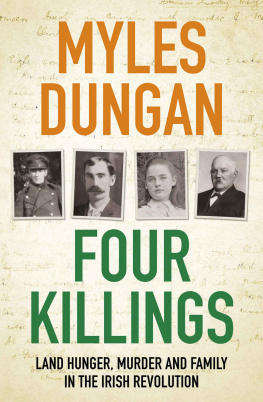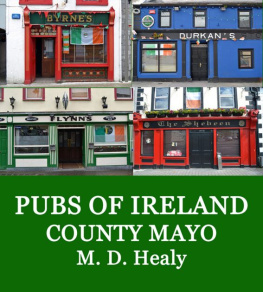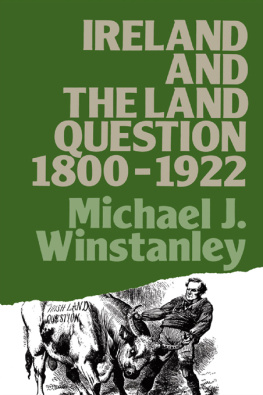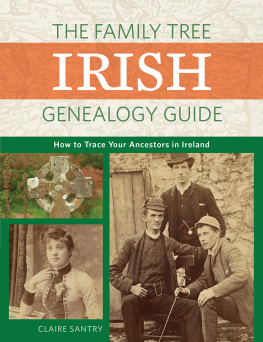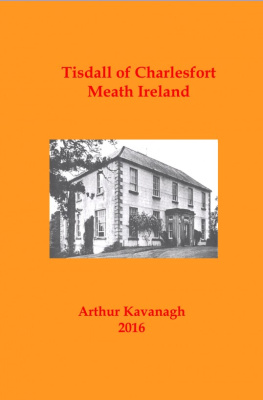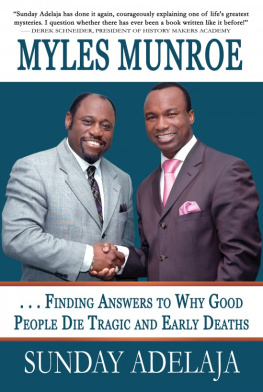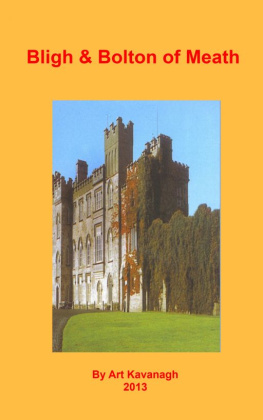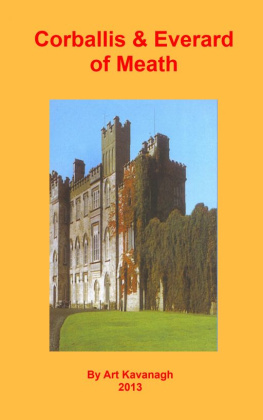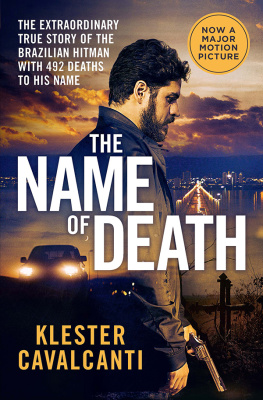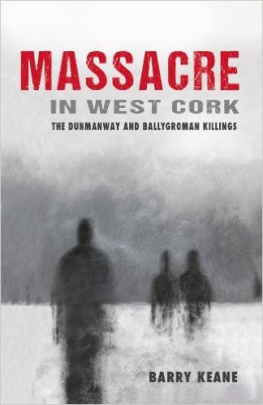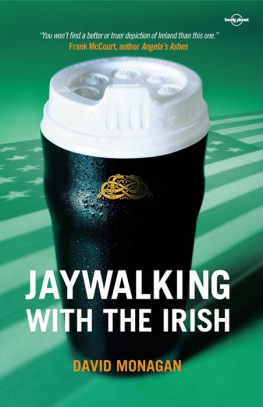FOUR
KILLINGS
FOUR
KILLINGS
LAND HUNGER, MURDER AND FAMILY IN THE IRISH REVOLUTION
MYLES DUNGAN
AN APOLLO BOOK
www.headofzeus.com
This is an Apollo book, first published in the UK in 2021 by Head of Zeus Ltd
Copyright Myles Dungan, 2021
The moral right of Myles Dungan to be identified as the author of this work has been asserted in accordance with the Copyright, Designs and Patents Act of 1988.
All rights reserved. No part of this publication may be reproduced, stored in a retrieval system, or transmitted in any form or by any means, electronic, mechanical, photocopying, recording, or otherwise, without the prior permission of both the copyright owner and the above publisher of this book.
A catalogue record for this book is available from the British Library.
ISBN (TPB): 9781800244849
ISBN (E): 9781800244870
Maps by Jeff Edwards
Head of Zeus Ltd
First Floor East
58 Hardwick Street
London EC 1 R 4 RG
WWW . HEADOFZEUS . COM
For
T.P. McKenna (18581929) and
Sarah Clinton (18671904)
Mary Teresa McKenna (18941983) and
Terence P. OReilly (18891945)
Mire OReilly (19202012) and
William Niall Dungan (19061964)
Without whom
And for my beloved brother Niall Dungan (19432019) without whom in so many different ways
Contents
Research and writing are normally very solitary occupations. You become accustomed to the company of dusty files in archives where, although you are surrounded by other readers, their preoccupations are not yours. They are inching down pathways that will lead to a fresh evaluation of the fraught interactions of de Valera and Churchill, or the catastrophic consequences of the nineteenth-century subdivision of Irish agricultural land.
Researching and writing Four Killings , however, has been utterly unlike anything I have ever attempted before. There were a few dusty files, and the usual dollop of solitude when it came to producing eighty thousand words, give or take. But this volume feels as if it has been written by a committee, many of whom did not even attend the same meetings, and some of whom live eight thousand kilometres apart.
Four Killings could not have been written without the generous contributions of time and expertise from a huge number of people. Since this is not an Oscar speech, I have the space to apportion full credit to each.
First, to my various McKenna and Clinton relatives.
On the Irish Clinton side, I owe a huge debt of gratitude to the two Mark Clintons, namesakes of the murdered IRA Volunteer, both of whom hail from Sutton. One is in the Sutton adjacent to Howth in north County Dublin, the other who also looked after my big brother in his first year at boarding school has been domiciled in Sutton Coldfield in the English midlands since the 1970s. A huge buochas is due.
Both Marks were rather like the TV detective Lieutenant Columbo. Just as they walked out the door, they would turn back with a Just one more thing! What followed would always be pure gold. I found out about Jack Clinton in a hurried post scriptum in a letter from Mark of Sutton Coldfield. Talk about burying the lede!
The feisty Rose Clintons youngest offspring, the genial Patrick Travers, was responsible for a couple of late revisions to the text when he brought some interesting material to my attention, as was Brian Flaherty, a relative of Jack Clintons wife Delia Varley, who has spent a considerable amount of time among the Clintons of Arizona (and makes very tasty desserts for a living).
Half a world to the west, and in the middle of the Old West itself, are those Clintons of Arizona: Roseanne Feeback and Mary Frances Clinton. Mark de Sutton (Ireland) just happened to mention them in one of those Columbo moments, and their input has been invaluable. Both have an acute sense of their fascinating family history, of which I have been able to include only the most dramatic incident and its ramifications.
The McKennas of Mullagh (and the wider world) are integral to this story. My beloved maternal grandmother was equal parts Clinton and McKenna, but she spent the early part of her life in Mullagh, County Cavan, surrounded by the descendants of the wild MacCionnaith clan, rather than the slightly more patrician Clintons, whose homestead overlooked the beautiful lake outside the town.
Two members of the pugnacious MacCionnaith sept have guided me on this journey. Stephen McKenna, based in London but a man who never strays far from his roots, has made his own insightful contribution to the historiography of the extended family with his poignant biography of our mutual grand-uncle, the ill-fated T.P. McKenna. I have relied heavily on A Gallant Soldier of Ireland: The Life and Times of T.P. McKenna Jr. , and on the counsel and expertise of Stephen himself. The son of one of Irelands most accomplished actors (the third T.P. McKenna), Stephen adds an innate flair for the theatrical to his peerless abilities as a researcher.
In trying to get a sense of the personality of John McKenna, I had a template to work from his son Joe. In one of the quirks of genealogy, Joe, although five years my junior, is actually a first cousin of my late mother. Were we one degree more closely related, he would be my uncle. Joe spent hours talking to me about his father one of the central characters in this narrative and escorting me around the highways and byways of County Meath, identifying some of the sites that figure prominently in the McKenna story. I am eternally grateful.
Joe enlisted the aid of his brother T.P. a storied name in this narrative who also offered some valuable guidance, as did Joes sister Margaret and her husband Michael Farrelly of the warrior clan from Clonagrowna, Carnaross, whose uncles feature heavily in this narrative and who now lives in the original family homestead. At a much earlier juncture, before beginning to get into the traumatic details of the McKennas War of Independence, my interest had been aroused by some written material gifted to me by Erna McKenna, daughter of Justin. This included the poignant poetry of her uncle, T.P. McKenna Jr.
When it came to the intricate details of the Anglo-Irish War in County Meath, I was fortunate in being able to enlist the aid of the men I have come to think of as the Three Amigos: Frank Cogan, Ultan Courtney and Danny Cusack. As with many of the others mentioned above, all three have obliged me by reading most of the text (including some chapters subsequently excised for reasons of space). The email conversations resulting from a query on my part have been fascinating and have made me aware that these three gentlemen have forgotten more about the War of Independence in the north midlands than I will ever know. On the rare occasions when I managed to come up with a piece of research with which they were not already familiar, I felt like an eager Leaving Certificate student who had just been marked as an A+.
Also offering invaluable information about his father, General Sen Boylan, was the legendary Sen Boylan Jr., who like his dad is a leader on and off the field.
Padraig g Ruairc has no valid excuse of consanguinity or geography for his involvement in this project, just an overweening curiosity and a cooperative spirit. Only he and I know the extent to which I relied on his expertise and his collaborative instincts. As they say in California (where at least half this book was written), Thank you for sharing, Padraig.
To all at Head of Zeus publishers I am most profoundly grateful. To my editor, Neil Belton, for his faith in this project, for his vision in seeing the potentially wider ramifications of a family memoir, and for his creative patience in guiding, pruning and expanding the narrative. To Clare Gordon and Matilda Singer for nudging me gently through some of the essential byways of publication. To Declan Heeney, publicist extraordinaire, whose only previous experience of my work has been as an annoying radio host.
Next page
